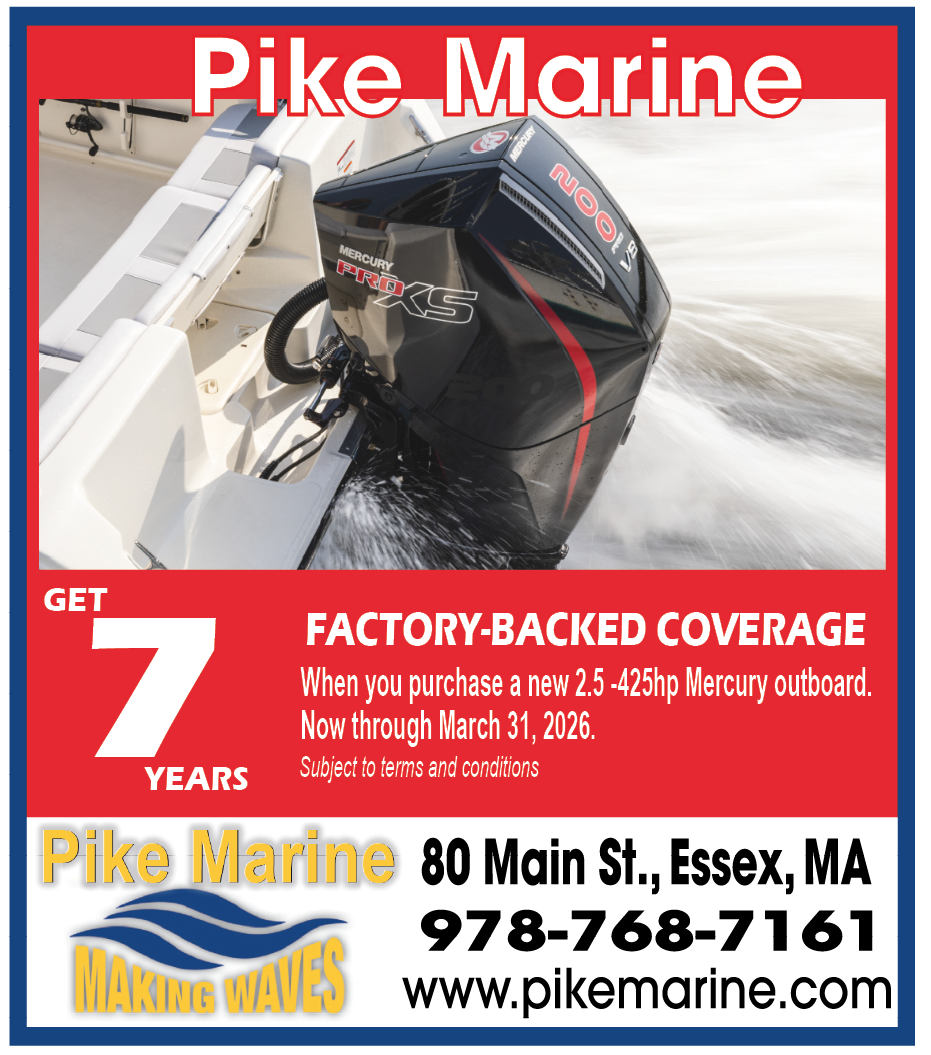REGIONAL – Last week, the Division of Marine Fisheries is enacted several changes to the commercial summer flounder management program for 2025. The changes are designed to increase the quota available to the inshore summertime fishery, maximize this resource’s value to our commercial fishery and seafood industry, and manage quota consumption throughout the summertime period in order to keep the commercial fishery open into September.
The Commonwealth’s 2025 commercial summer flounder quota is 571,147 pounds, of which about 46,000 pounds (~8%) has been taken so far this year. Therefore, about 525,000 pounds of quota (~92%) remains available for the remainder of the calendar year.
The annual quota is allocated seasonally between Period I (January 1 – April 22) and Period II (April 23 – December 31). The fishery during Period I occurs almost exclusively offshore in federal waters during the winter months, whereas the Period II fishery spans from the spring into the early fall in the inshore waters around Cape Cod and the islands before transitioning back offshore into federal waters should quota remain available into the fall. Historically, Period I has received 30% of the annual quota and Period II has received 70% of the annual quota plus any underage of the Period I allocation. Moving forward, DMF has adjusted this quota allocation split by reducing the Period I allocation to 15% and increasing the Period II allocation to 85%.
Effective May 9, 2025, new rules went into place affecting the commercial summertime (April 23 – September 30) for the directed summer flounder fishery. The trip limit for net fishers will be reduced from 600 pounds to 500 pounds and the trip limit for hook fishers will be reduced from 400 pounds to 325 pounds. These trip limits may be automatically adjusted in-season based on projected quota utilization. If 75% of the annual quota is taken on or before August 15, the trip limit will be reduced to 400 pounds for net fishers and 250 pounds for hook fishers. If 90% of the annual quota is taken before September 1, the trip limit will be reduced to 200 pounds for all commercial fishers. However, if more than 20% of the quota remains available on September 1, the trip limit will be increased to 800 pounds for all gear types.
To participate in the directed trawl fishery, vessels must be using a net with large mesh that measures at least 6.5” in the cod end and at least 6” throughout the remainder of the net. Trawlers that are lawfully using smaller mesh (e.g., squid) are limited to a bycatch of 100 pounds of summer flounder but may switch over to large mesh during a trip and participate in the directed summer flounder fishery provided they are not in possession of more than 100 pounds of summer flounder when fishing small mesh.
Starting last week, Saturdays will be eliminated as an open directed fishing day. The Saturday closure will remain in effect through August 31, resulting in open directed fishing days from Sunday through Friday. The directed commercial fishery will automatically move back to seven-day-per-week on the first Saturday on or after September 1 should quota remain available. However, please note that vessels participating in lawful small mesh fisheries (e.g., squid) may retain, possess, and land a bycatch of summer flounder not to exceed 100 pounds on Saturdays.
Consecutive Daily Limit Program
DMF is renewing the consecutive daily limit program for June 10, 2025. This program will allow vessels participating in the summertime mixed species trawl fishery south of Cape Cod to possess and land two days’ trip limits of summer flounder, black sea bass, horseshoe crab, and whelk that were lawfully caught and retained over consecutive open fishing days provided each day’s catch is segregated. This program has been in effect since 2019 and is designed to enhance economic efficiency and address on-the-water safety issues.
Note that there are two changes being made to this year’s program. First, in addition to fishing activity having to span at least two calendar days, participating vessels are now restricted from landing and offloading fish within 24 hours of the start of the trip. Accordingly, if you start a trip at 9AM on a Monday, the earliest you could return to port to offload two trip limits is 9AM on Tuesday. Second, participants are no longer required to seal and secure containers of the first day’s catch with a single use tag. Instead, the first day’s catch of each species must be segregated from the second day’s catch of each species and clearly labeled and identifiable as such for inspection. Please note that during the period-of-time when Saturdays are closed as directed fishing days, vessels will not be able to fish for, possess, or land summer flounder in Massachusetts on Saturdays under this program or land fish in Massachusetts on another calendar day (e.g., Sunday) that were previously caught on Saturdays in another jurisdiction (e.g., federal waters).
To be eligible to participate, the permit holder must hold a Coastal Access Permit and relevant species-specific regulated fishery permit endorsements. To apply, please provide the following information to Jared Silva by e-mail jared.silva@mass.gov.
For more information, please visit our website: www.mass.gov/marinefisheries. ♦



